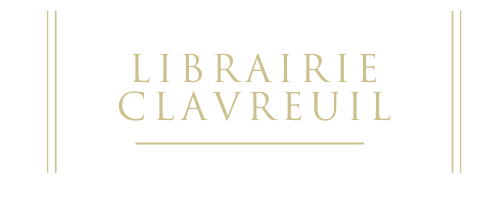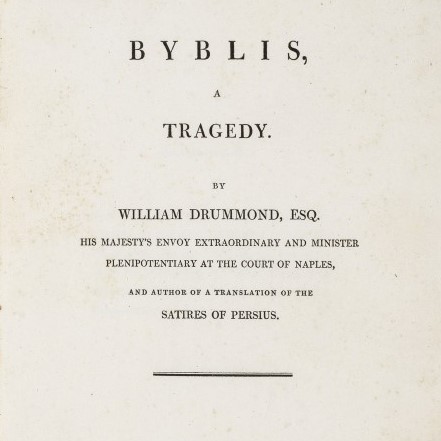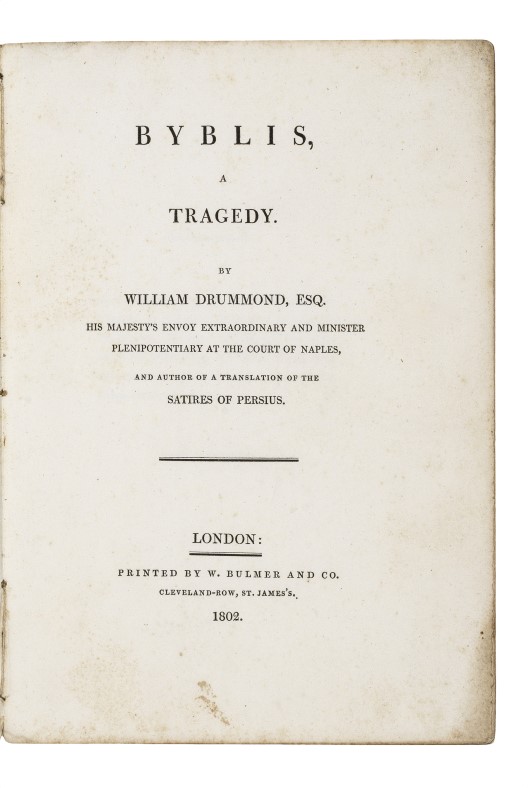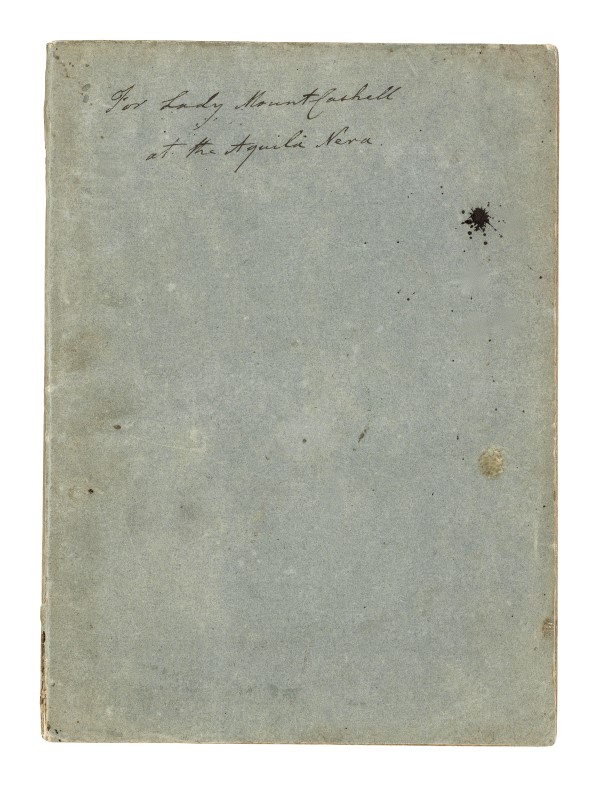In stock
First edition, presentation copy, inscribed on the upper wrapper “For Lady Mount Cashell at the Aquila Nera” in what is quite certainly the hand of the author.
The “Aquila Nera” in the inscription is very probably the same inn at Livorno where the Shelley family stayed for a week — arriving on the 17th of June 1819 — while searching for a villa. The inn seems to be have been a favorite stop for English travelers while travelling in Tuscany. We know that Drummond and Lady Mount Cashell were both in Italy in the second half of 1802, close to Livorno.
Drummond (1770?-1828), Scottish diplomat, classical scholar, and M.P., was very influential in the development of the ideas of the Shelley. Drummond’s researches into comparative mythology and, especially, his sceptical opinions on the Bible influenced a generation of free thinkers, including Shelley. Drummond’s Academical Questions (1805), a manifesto for immaterialism, convinced Shelley to abandon his French materialist philosophical beliefs.
Lady Mount Cashell (1773-1835), born Margaret King, had Mary Wollstonecraft as her tutor, who inculcated republican sympathies in her student. Later, Lady Mount Cashell became an intimate friend of Mary Shelley, the daughter of Mary Wollstonecraft, and her husband Percy Bysshe Shelley. While travelling in Europe, Lady Mount Cashell met George William Tighe, an Irishman, and they fell madly in love. She left her husband and children in 1803, travelled in Italy with Tighe — calling herself “Mrs. Mason,” taking the name from Mary Wollstonecraft’s Original Stories from Real Life. Claire Clairmont remembered her as to have studied medicine in Jena dressed as a man. Tighe and “Mrs. Mason” finally settled in Pisa and received the Shelleys, introducing them to the intellectual and social world of their adopted city.
This copy bears authorial changes: on page 35, one line of text has been completely erased. On page 40, Drummond has made three corrections.
Fine copy in original state. Rare. Preserved in a box.
Vous pourriez également être intéressés par ...
Related products
-
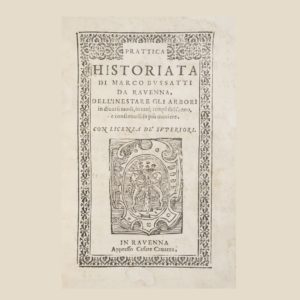
BUSSATTI, Marco
30 000 € Add to basket
Prattica historiata del l’inestare gli arbori
1578 -
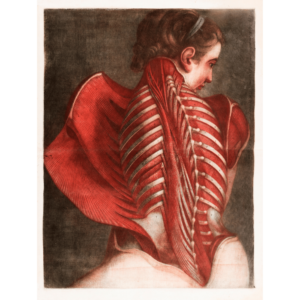
GAUTIER D’AGOTY Jacques Fabien
100 000 € Add to basket
La Myologie complète
1711-1786 -
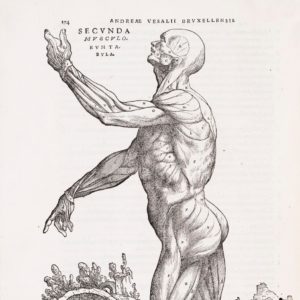
VESALE André
350 000 € Add to basket
De Humani Corporis Fabrica Libri septem
1543 -
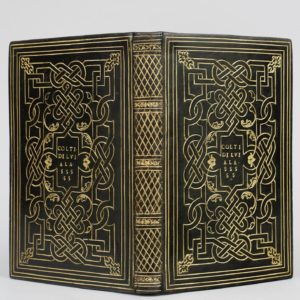
ALAMANNI, Luigi
50 000 € Add to basket
La Coltivatione di Luigi Alamanni al Christianissimo Re Francesco Primo
1546
